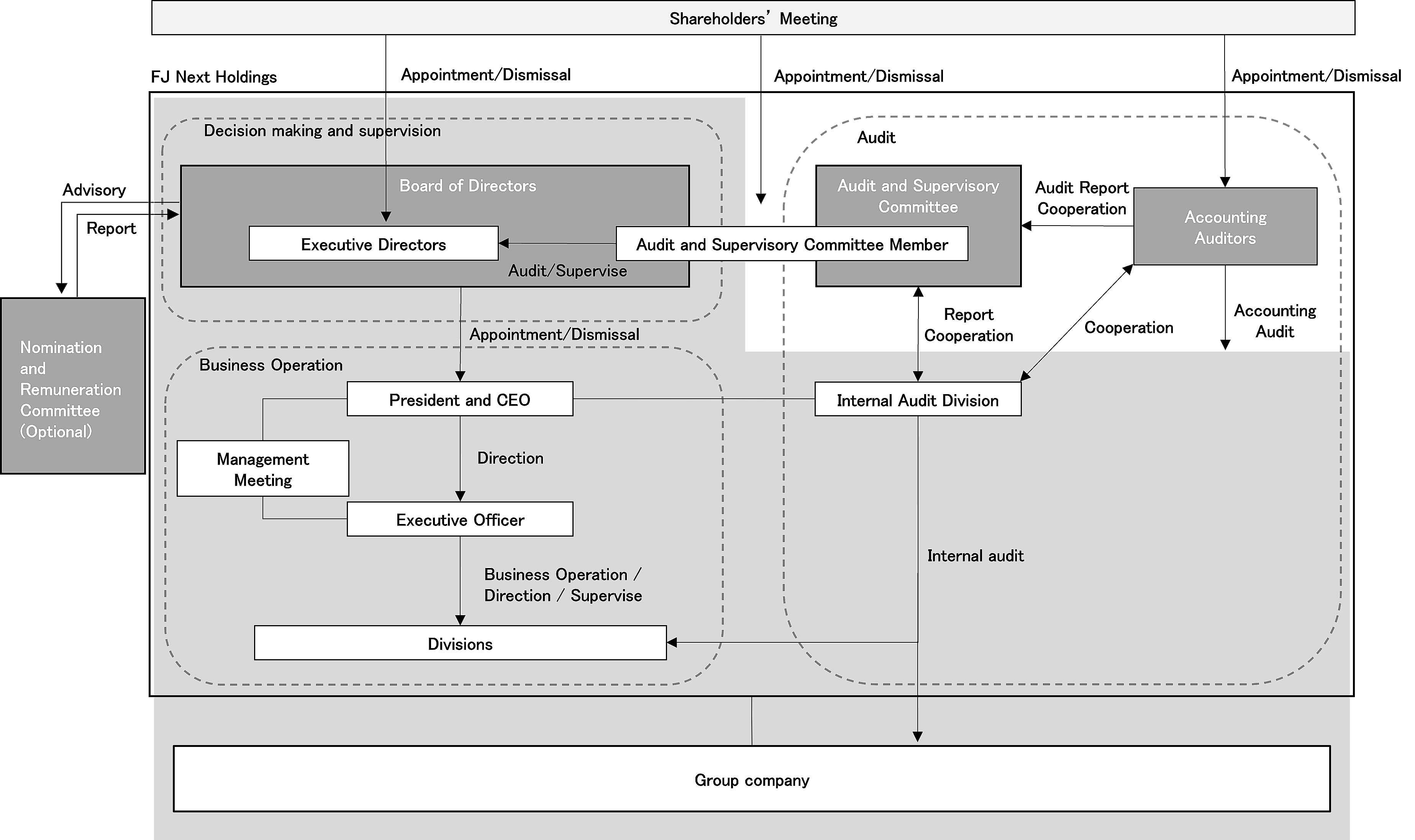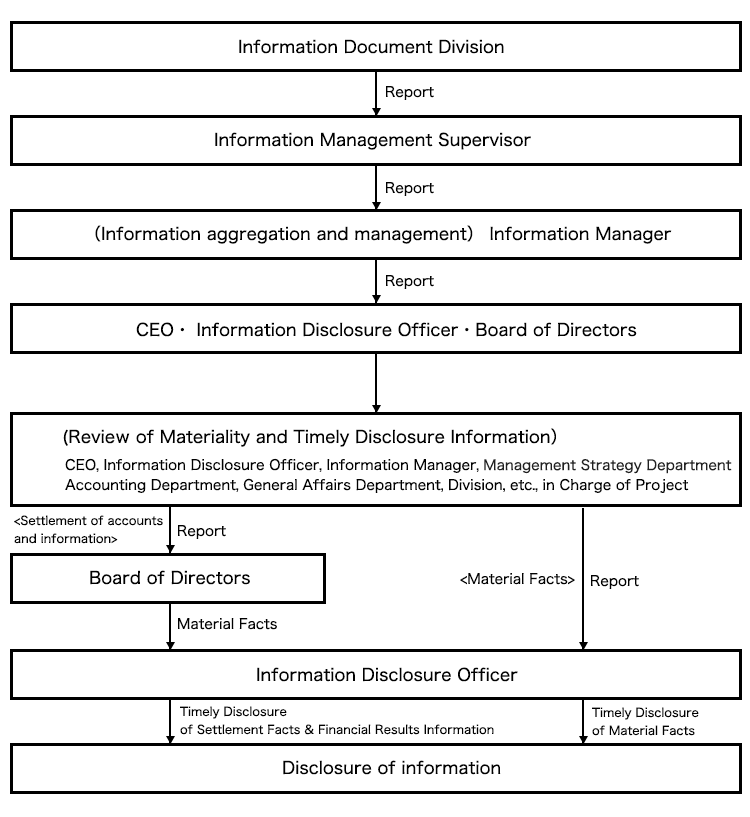Basic Policy and Systems
Basic Concept
With the aim of improving profitability and maximizing corporate value for the entire Group, the basic policy of corporate governance is to establish an organization structure that enables prompt and appropriate decision-making and business execution by management, and to fulfill management responsibility to shareholders and all other stakeholders.
Disclosure Based on Rules of the Corporate Governance Code
For details on the Company's policies and status of initiatives for all basic rules, rules, and supplementary rules, including disclosure items based on rules of the Corporate Governance Code, please refer to the following “Initiatives of the Company for the Corporate Governance Code."
Corporate Governance System Schematic Diagram

Overview of System for Timely Disclosure Schematic Diagram

Audit and Supervisory Committee
Committee Composition and Chairperson Affiliation
| Committee Members | Full-Time Committee Members | Inside Board Directors | Outside Board Directors | Chairperson | |
|---|---|---|---|---|---|
| Audit and Supervisory Committee | 3 | 1 | 1 | 2 | Inside Board Directors |
| Board Directors and employees responsible for assisting the duties of the Audit and Supervisory Committee | Yes |
|---|
Matters Concerning the Independence of Board Directors and Employees from Executive Directors
Based on the "Basic Policy on Establishing an Internal Control System," staff members responsible for assisting the Audit and Supervisory Committee shall be concurrently assigned from other departments. Said staff members shall assist with the duties of the Audit and Supervisory Committee as appropriate. Furthermore, staff members of the Company will follow the instructions and orders of the Audit and Supervisory Committee with regard to said assistance.
Consent from the Audit and Supervisory Committee must be obtained in advance for the appointment and transfer of staff members to assist the Audit and Supervisory Committee, thus ensuring the independence of staff members from executive directors.
Cooperation Between the Audit and Supervisory Committee, Accounting Auditors, and the Internal Audit Division
In order to exchange information on auditing methods and related contents, all full-time auditors and outside auditors attend joint meetings between auditors and the Outside Audit and Supervisory Committee members. These meetings are held about four times a year. Furthermore, through appropriate exchange of information by being present during on-site investigations conducted by outside auditors, full-time auditors work to strengthen mutual relations.
Furthermore, the Company's Internal Audit Office has established a system for mutual sharing of information on audits through close cooperation. For example, the Internal Audit Office cooperates with Full-time Audit and Supervisory Committee members in order to conduct audits of the Company's divisions and subsidiaries. In addition to securing cooperation with outside accounting auditors through Full-time Audit and Supervisory Committee members, the Internal Audit Office also creates opportunities for direct cooperation as necessary.
Optional Advisory Board
Composition of the Committee and Attributes of the Chairperson
| Committee Members | Full-Time Committee Members | Inside Board Directors | Outside Board Directors | Chairperson | |
|---|---|---|---|---|---|
| Nomination Committees | 3 | 0 | 1 | 2 | Outside Board Directors |
| Remuneration Committees | 3 | 0 | 1 | 2 | Outside Board Directors |
| Board Directors and employees responsible for assisting the duties of the Audit and Supervisory Committee | Yes |
|---|
Purpose of installation
By ensuring the transparency and objectivity of the evaluation and decision-making process regarding the nomination and remuneration of directors, we have established a voluntary nomination committee and remuneration committee to strengthen the supervisory function of the Board of Directors and enhance the corporate governance system.
Role of each committee
Matters concerning the appointment and dismissal of directors (excluding Audit and Supervisory Committee members), matters concerning the selection and dismissal of representative directors and directors with titles, matters concerning remuneration for directors (excluding Audit and Supervisory Committee members), and other management matters in response to inquiries from the Board of Directors Deliberates on the above important matters to be consulted by the Board of Directors and reports to the Board of Directors.
Composition of each committee
The Nomination and Compensation Committee shall consist of three or more directors selected by resolution of the Board of Directors, the majority of whom shall be independent outside directors. In addition, each committee is chaired by an independent outside director.
